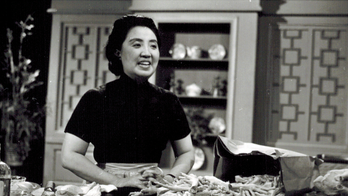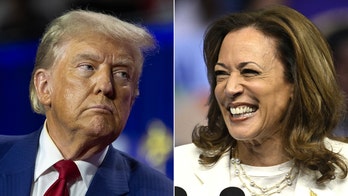Harvard University is facing criticism for adopting new university-wide rules that restrict protesting and limit freedom of speech on campus spaces. Jewish college student Shabbos Kestenbaum calls out antisemitism on college campuses following the Oct. 7 attack on Israel during the Republican National Convention.
Harvard University's implementation of new university-wide policies has sparked controversy, with critics arguing that they stifle free speech and legitimize antisemitism. The new rules, drafted by the school's Office of General Counsel and the Working Group on Campus Space Use, prohibit overnight camping, unapproved signage and displays, and chalking on Harvard property.
According to a draft document obtained by The Harvard Crimson, the university aims to "foster the well-being of community members" and "preserve these resources for future generations." The document also states that the university has an "obligation to adopt rules and policies that simultaneously protect and facilitate the use of the University's private property."

Harvard Restricts Protesting: New Rules Silence Free Speech and Protect Anti-Semitism
Harvard spokesperson Jason A. Newton emphasized that the university seeks to ensure accessible guidelines on campus space usage. However, critics question the timing of the document, which follows months of anti-Israel protests on campus. These protests included a temporary encampment in Harvard Yard featuring signs decrying genocide and advocating for divestment from Israel.
Former Harvard President Lawrence H. Summers expressed skepticism about the school's ability to enforce the policies. He pointed out that the university has failed to impose sanctions when policies were violated, particularly in the context of Jewish student groups. Harvard's inaction has prompted multiple federal government investigations and civil suits.

Harvard Restricts Protesting: New Rules Silence Free Speech and Protect Anti-Semitism
Richard F. Thomas, a Classics professor at Harvard and a member of Faculty and Staff for Justice in Palestine, criticized the draft policies as misplaced. He raised concerns that the emphasis on safety and orderliness might infringe upon the well-being of the community.
The new rules have also drawn criticism from Jewish students who argue that they do not adequately address antisemitism on campus. Shabbos Kestenbaum, a Jewish college student, spoke out against the antisemitism he witnessed during the attack on Israel at the Republican National Convention.

Harvard Restricts Protesting: New Rules Silence Free Speech and Protect Anti-Semitism
Kestenbaum highlighted Harvard's responsibility to foster an environment where Jewish students feel safe and supported. He emphasized that the university has a history of downplaying antisemitism and failing to adequately address it.
Critics of the new rules argue that they fail to protect students from harassment and discrimination based on their religious or political beliefs. They contend that the university should prioritize creating an inclusive campus climate rather than restricting protests.
The implementation of these rules at Harvard reflects a growing trend on college campuses to limit free speech and suppress dissent. While the university may argue that these measures are necessary to maintain order and safety, critics argue that they have the potential to silence important voices and stifle intellectual inquiry.










